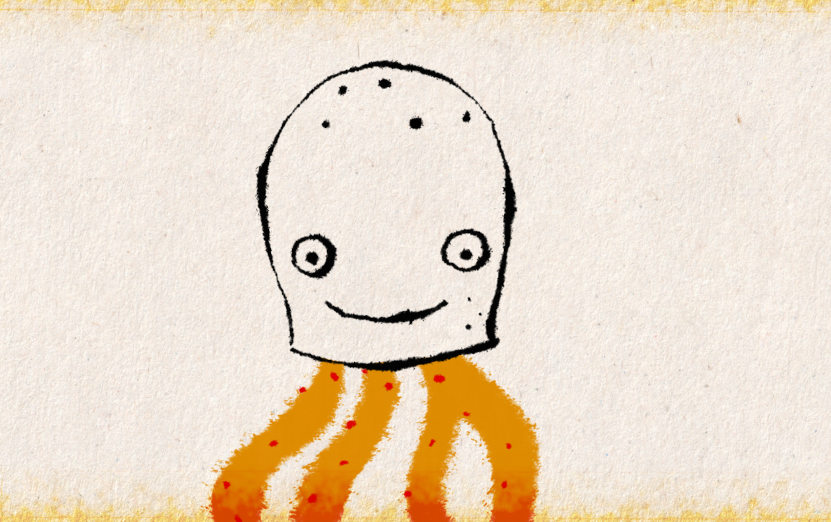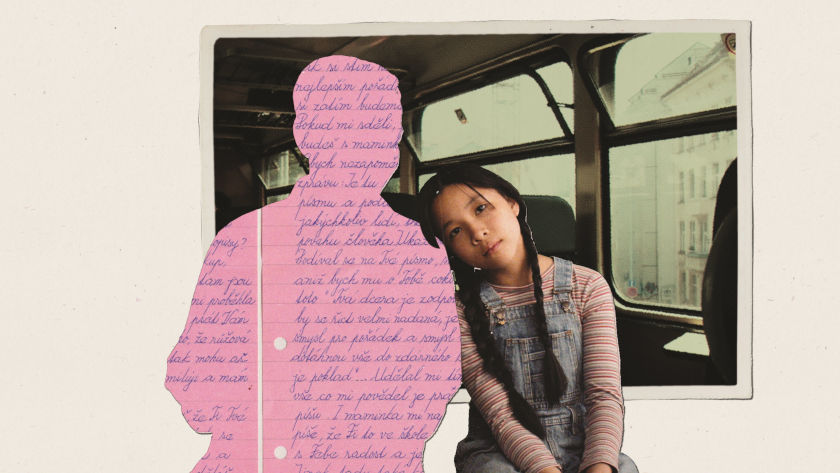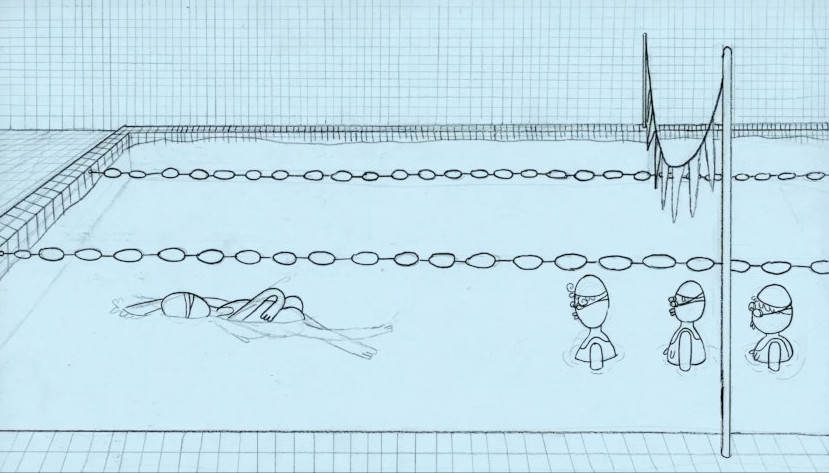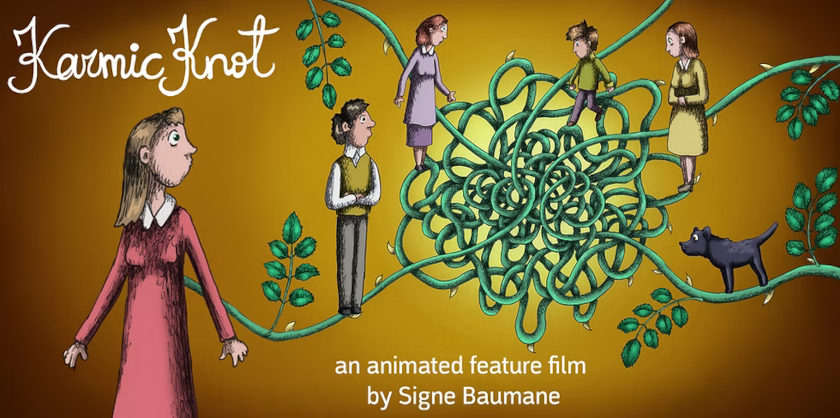'Comeback' Animation Short: Interview with Vladimir Leschiov
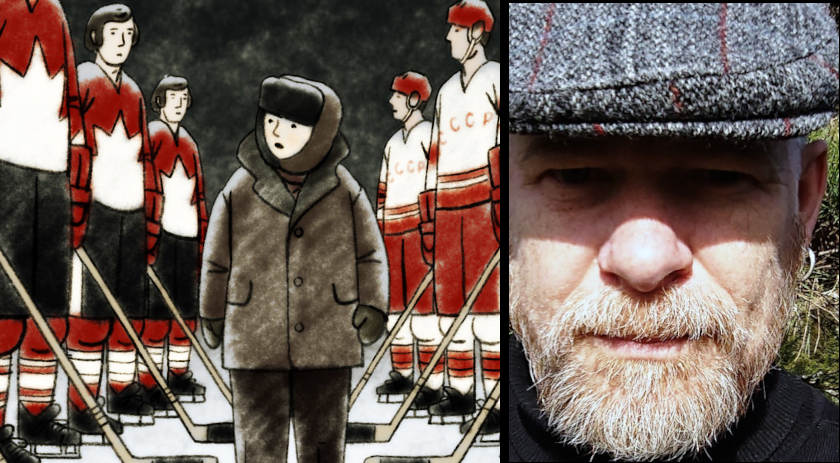
Vladimir Leschiov is one of the most consistently working Latvian animation directors (even though he himself won't agree with this: "it depends", it's his answer). His output starts from the student film 'The Letter' (2002), and 'Granddad's Honey (2002), made at Konstfack University College of Arts (Sweden) followed up by indie gems such as 'Insomnia' (2004), 'Lost in Snow' (2007), 'Wings and Oars' (2009), the European Film Award nominated (and co-directed with Kaspar Jancis) 'Villa Antropoff' (2012), 'Rainy Days' (2014) and 'Waiting for the New Year' (2016).
More recently, Leschiov (born in Daugavpils, eastern Latvia), completed Electrician's Day (2018); his newest film 'Comeback' (2021), a flashback on childhood and hockey on ice in Soviet Latvia, premieres at this year's Annecy Festival. Since 2007, Vladimir Leschiov runs Lunohod, a studio for both commercial and auteurist work; and his mark on independent, hand-drawn animation is unmistakable throughout his career.
"Sometimes, I work on a short film for two years; sometimes, it's more than that. I'm also running the Lunohod studio; I'm a producer, I'm director, I'm animator, even a composer -like I did in the Electrician's Day. So, I'm doing almost everything, and I do have to think how to survive. I don't like to use the word 'business' in this case; for me, it's really a joy and I'm enjoying this - but I do have to keep the studio".
Taxes need to get paid as well, plus all other external obligations. "When I make a film, I already have to think of a new project ahead. I'm not thinking about it during the work process; but I do think about a new project when I finish doing a certain stage; like finishing the animation stage".
Coffee (and tea) breaks work for creativity, even though in Leschiov's case they coffee and tea can be the ingredients for his own previous films, like the black tea and ink on paper in Rainy Days (2014)
Comeback tells the story of a long-lost childhood passion (here hockey on ice) which comes back to a grown up one day, and it is the most straightforward narrative Leschiov's film to date.
Watch Comeback
Canada features a lot in the film credits (Pierre Yves Drapeau in the sound design and Normand Roger in the music); it is also part of the film's own plot, in which Canadian hockey players are competing against the Soviet team. "I've been collecting ideas for years" Leschiov explains, "and I'm trying to put them in a story - to do something with them. It's something similar to what musicians do: you take the guitar and start playing a chord, and then something comes to your mind; another chord, another word, and then the whole thing appears".
'Comeback' is the first fully 2D computer-animated film for Leschiov ("I used paper only for the layouts and the storyboards" he states), and also 'a hard project' for Leschiov to make - not just because of the covid circumstances. A co-production project that didn't materialize led to a complete revision of the script itself during the process. In the original script (timed between 13 and 15 minutes) two different people were telling their own stories. The script was radically revised after the co-production fell apart and almost half of the animation already done by Līga Skirmane was thrown away ("I had to apologize to my wife, who was also my collaborator; she made brilliant animation scenes" Leschiov notes).
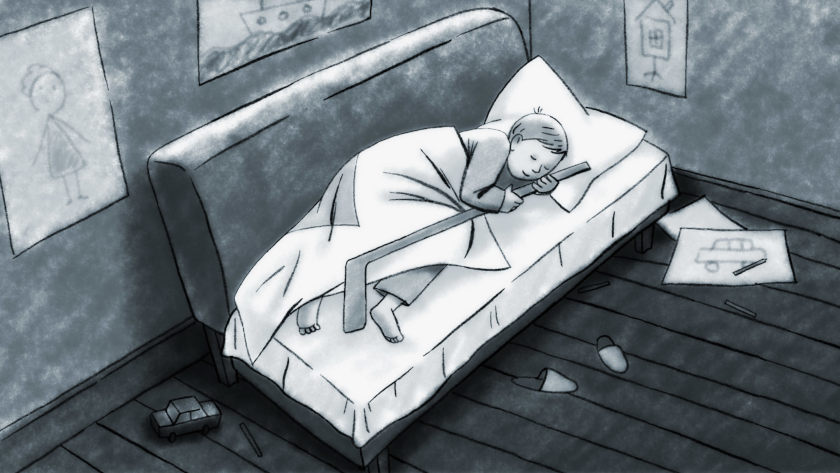
Still, the film had already the Latvian Film Fund funding in place and requirements had to be met. Personal troubles only made things more difficult; Leschiov suffered an injury in his Achilles tendon in February 2020, and had to undergo surgery including a long process of rehabilitation. "I started animating right after the surgery" he states. "I wasn't able to walk, but I was sitting at home, being in pain, and animating at the same time. It was a horrible period. After one year, I'm able to walk again normally".
A new-born son was at least a personal gift for both Leschiov and Skirmane, and a fitting bookend to the Comeback film -which involves kids and their own desires, but also talks about the contrast between art and everything else.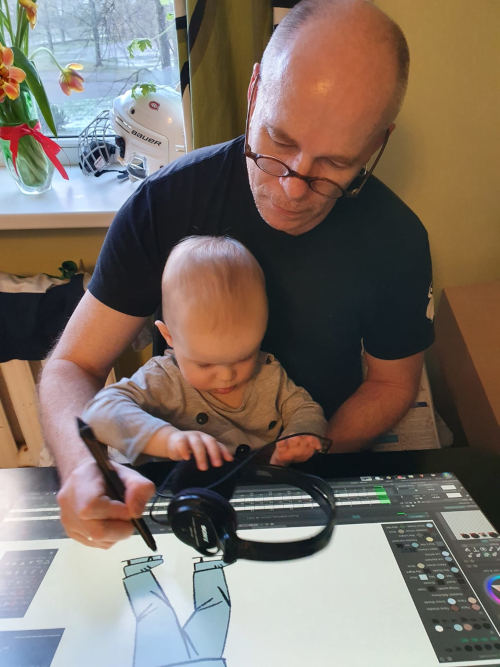 "When I was a kid of 10 years old, I was a very big fan of hockey and also played it myself" Leschiov remembers. "It took me a very big amount of my time. But I was studying at the art school at that time, and the teachers were very unhappy because I was missing lessons due to training or games. Sometimes, I would come to the school with swollen or blue eyes, or small injuries, and this didn't fit their image of an artist".
"When I was a kid of 10 years old, I was a very big fan of hockey and also played it myself" Leschiov remembers. "It took me a very big amount of my time. But I was studying at the art school at that time, and the teachers were very unhappy because I was missing lessons due to training or games. Sometimes, I would come to the school with swollen or blue eyes, or small injuries, and this didn't fit their image of an artist".
Basketball, Latvia's national sport, did not fit in well with Leschiov ("I was a too rough player"). One day, his teachers made him choose between the cultured, cultivated life of an artist and the life of a sportsman. His passion was reignited many years later, when he visited Canada for the Rainy Days film, an NFB co-production. "Because of Normand Roger, Pierre-Yves Drapeau, and NFB's Marc Bertrand I put the skates on my feet again. My childhood dream came true. In the Soviet Union, you couldn't even dream of playing hockey with foreign teams; they were our idols and rivals. So, in 2014 I was playing hockey again, in Montreal! It was my comeback".
Sports have always been used for political propaganda, and Comeback makes that direct. "In 1972, a game took place between Canadian professionals and so-called Russian amateurs. This event influenced thousands of kids in the Soviet Union and inspired them to play hockey. USSR general secretary Leonid Brezhnev himself, who appears on the film in the TV news, was a big hockey fan. 'Comeback' is a particular film about history. Now, this Russian president, whose name I don't want to mention (an enemy of his whole nation), he's a fan of hockey as well -including another guy from Belarus. I'm very unhappy that these guys discredited this beautiful sport.
Art suffers from both political exploitation and from simple-minded bureaucracy and red tape on the other hand. "The situation changed dramatically since I started making animation films in Latvia on my own, and not being hired by the studios anymore. There was not so much paperwork at that time (2007): you submitted the project, you got the money, and you didn't care about anything else; you just worked and made the film. When I created Wings and Oars, I was absolutely free. Many consider this to be my best film. But year after year, the situation became more complicated. More paperwork, more reports".
This is where the producer usually steps in; yet for small animation studios, it comes the time that the filmmaker and studio have to choose either to slow down their output (and meet the demands of the added bureaucracy) or bring more money to the table to hire the person for the job (not a financially easy decision either).
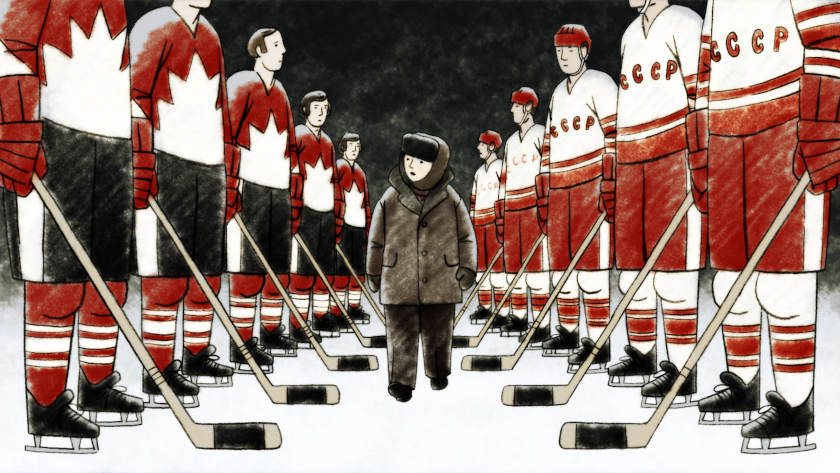
In the world of academia, where Leschiov currently teaches, the market question is also relevant. "I'm teaching 17-year-old students in my hometown at Daugavpils School of Art 'Saules Skola'. The college has a 4-year programme of professional education, where animation is part of the Multimedia Design department. "They're really nice guys, I love them very much. But technology now changes so dramatically, that's nearly impossible now to teach them how to draw on paper. Paper is getting more expensive,and it's much easier to do it on the computer'. Still, Leschiov tries to make his student draw on paper before them moving on to the computer.
Leschiov teaches his students the basics of animation, animation directing and storytelling. "Perhaps one or two out of 10 students will continue with animation or not, but it doesn't matter. I'm trying to develop their creative thinking and make them understand they can do many things with their own hands. I don't expose myself and my own films; I'm trying to explain to them that they are going to work with other people; so, they are not going to do their projects alone, as I'm doing. They could do animation and work in big studios; if not in Latvia, then in the US or somewhere else".
Leschiov himself had to study in Sweden to make his student film, Granddad's Honey (2004), the film he himself says he's most proud of. "It was an absolutely amazing technique and experience, and my first one. So, if you'd ask me in which film you don't wish to make any changes, I'd definitely say Granddad's Honey".
He still finds faults in his other films, even though he admits that time somehow sugarcoats the mistakes of earlier projects. "When I was studying, my teacher Piotr Dumala told me once that you can improve your work permanently over time, and you'll never finish it. This is true, and we somehow need to live with that."
Leschiov clearly invests a lot of time in the study of the past in his films, even though no one would call his films conventionally nostalgic. "The past is what already happened to you, and you know it" he will affirm. "It's a subject you definitely can be very honest with; you can share it with other people without a lie".
Living in a country which had its own share of political upheavals (independent from the Tsarist Russia, WWII occupation, the Soviet regime etc.), Leschiov still wants people to remember the positive thing. "During that period, people were more friendly. We knew each other, the people you were living with in the same house. I don't know anybody now in my house; times are changing, and people are hiding in themselves".
The fascination with money and its influence on social status also bothers him; individuality and its fierce competition becomes so prominent that eliminates all social care and worries ("You have to think about society in general, and how to be together"). Τhis is perhaps their reason for Leschiov's continuous fascination with Japan (beautifully depicted in Rainy Days, realized because of Leschiov's own Japan relationship); Japan is a nation which has a heightened awareness of social cohesion.
"They respect each other. They are huge workaholics, but they are smiling much more than Europeans, and they are more open-minded than Europeans. They have this border when it's OK to say something bad to each other or not; we don't have this border. We do not control ourselves; Japanese people will never tell you something like "Go to hell" or something like that".
Comeback is about to start its festival trip and juries and audience feedback is on its way. "It makes me even more satisfied to hear people describing a different version of the film I couldn't even expect to hear" he anticipates possible reactions. He attributes this to his multi-layered story which invokes both reality and subconscious ideas and creations; this in turn gives the liberty to the audience to create even more layers within the story. "This makes me happy because the film works. It's not a picture which you just saw for what it is; it is a picture that makes you think and participate. You're a player in this cinema game".
This is audience interaction without the need for XR/VR equipment. "You're watching Tarkovsky's The Mirror or Nostalghia. You are there, and immediately the protagonist of the story. Your brain is not resting, but working in a good way. Not the way you think about how to get food, and how to earn money, but in a more natural, creative way. You can watch these films many times, and you'll discover something new".
Self-aware of his cultural Russian origins (but never lived in Russia), he describes himself as a mix absorbing all major influences and a 'global person' -even though he won't cash this out as a success story. "The animation community is very special because there are no conquerants. In the live-action film industry, actors are struggling for the main role, at the Oscars. They're pretending they're friends, but they're not; they're conquerants. I haven't noticed this in the animation community so far".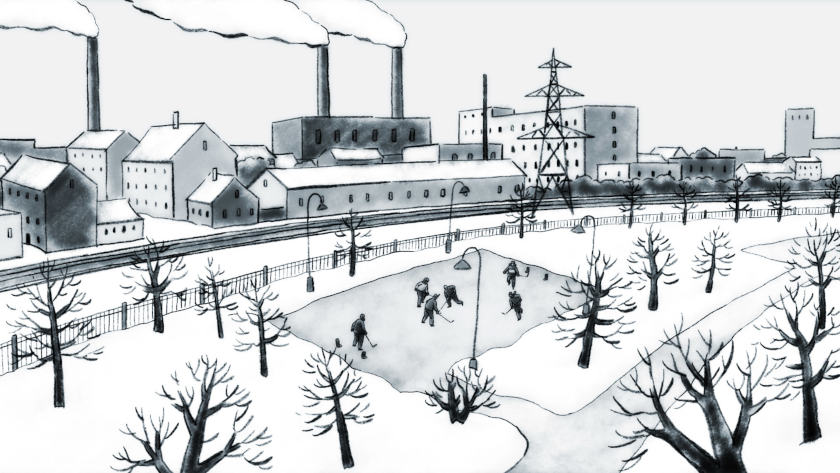
The Latvian animation community is small and nice and vibrant and hard-working (time sometimes getting in the way of closer friendships. The way to build it forward would imply a better understanding of the art itself. "Budget is not the main problem" Leschiov observes. "You can still make an average film with good financial support, and the reverse. I would like to see better conditions for the artist to move free. I want the country to see that artists are different people; to make something nice, they have to be free of things like the administrative stuff. We don't ask our Prime Minister to paint a picture; why do you ask us to be an accountant and a businessman? Artists are a different nation, with a different way of thinking, but an important and necessary part of society. It's because of that part of society that the other part can enjoy the arts and music, etc. And we'll lose them if we think otherwise; it's obvious. I want this change". Fair enough.
Comeback by Vladimir Leschiov has its world premiere at The Krakow Film Festival (30 May - 6 June 2021) and later at the Annecy International Animation Film Festival, 14-19 June 2021.
The interview was conducted in partnership with Latvian Animation Association




